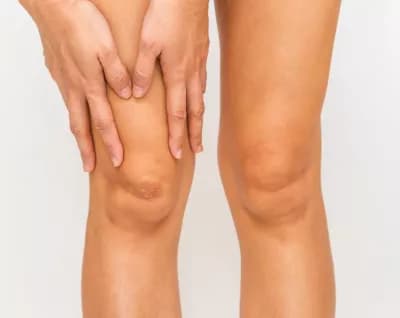
Implanted Neuroprosthesis Improves Walking Ability In Stroke Patient
A surgically implanted neuroprosthesis--programmed to stimulate coordinated activity of hip, knee, and ankle muscles--has led to substantial improvement in walking speed and distance in a patient with limited mobility after a stroke, according to a single-patient study in the American Journal of Physical Medicine & Rehabilitation, the official journal of the Association of Academic Physiatrists. The journal is published by Wolters Kluwer.
"An implanted stimulation system for multi-joint control is a promising intervention to provide assistance to stroke survivors during daily walking," write Nathaniel S. Makowski, PhD, and colleagues of the Louis Stokes Cleveland Veterans Affairs Medical Center. With technical refinements and further research, such implanted neuroprosthesis systems might help to promote walking ability for at least some patients with post-stroke disability.
Initial Experience Shows 'Clinically Relevant Improvements in Gait'
The researchers report their experience with an implanted neuroprosthesis in a 64-year-old man with impaired motion and sensation of his left leg and foot after a hemorrhagic (bleeding) stroke. After thorough evaluation, he underwent surgery to place an implanted pulse generator and intramuscular stimulating electrodes in seven muscles of the hip, knee, and ankle.
Dr. Makowski and colleagues then created a customized electrical stimulation program to activate the muscles, with the goal of restoring a more natural gait pattern. The patient went through extensive training in the researchers' laboratory for several months after neuroprosthesis placement.
In a 'before-and-after' study design, the patient showed significant gains in walking speed and distance. Gait speed increased from 0.29 meters per second (m/s) before surgery, to 0.35 m/s after training but without muscle stimulation--a nonsignificant improvement.
But when muscle stimulation was turned on, gait speed increased dramatically: to 0.72 m/s. Detailed analysis of the patient's walking ability also showed evidence of a "more symmetrical and dynamic gait."
In addition, the patient was able to walk much farther. When first evaluated, he could walk only 76 meters before becoming fatigued. After training but without stimulation, he could walk about 300 meters (in 16 minutes). With stimulation, the patient's maximum walking distance increased to more than 1,400 meters (in 41 minutes) with stimulation. "Thus his walking distances increased by 370 percent with stimulation while walking nearly twice as fast," Dr. Makowski and colleagues write.
Even though the patient wasn't walking with stimulation outside the laboratory, his walking ability in daily life improved significantly. He went from "household-only" ambulation to increased walking outside in the neighborhood.
"The therapeutic effect is likely a result of muscle conditioning during stimulated exercise and gait training," according to the authors. "Persistent use of the device during walking may provide ongoing training that maintains both muscle conditioning and cardiovascular health."
While the results of this initial experience in a single patient are encouraging, the researchers emphasize that large-scale studies will be needed to demonstrate the wider applicability of a neuroprosthesis for multi-joint control. If the benefits are confirmed, Dr. Makowski and colleagues conclude, "Daily use of an implanted system could have significant clinical relevance to a portion of the stroke population."
Related Articles
Test Your Knowledge
Asked by users
Related Centers
Related Specialties
Related Physicians
Related Procedures
Related Resources
Join DoveHubs
and connect with fellow professionals

0 Comments
Please log in to post a comment.